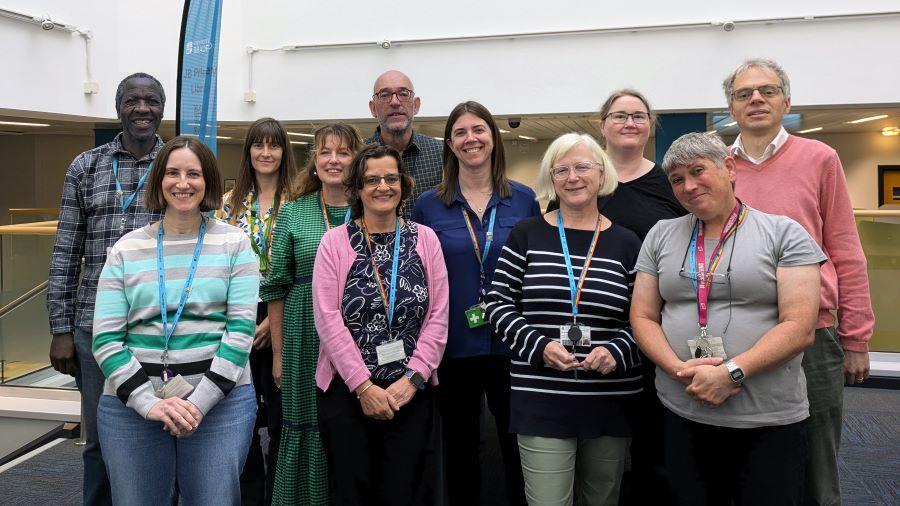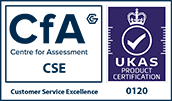Library workshops 2024/25
We offer a programme of workshops throughout the year for students, PGRs, academic and research staff. These will develop your skills in finding, using and managing high quality information for your learning, teaching and research activities. For students, these workshops complement the library-led induction and teaching which will be delivered through your course. See your programme/module information for more details.
The workshops are offered online and face to face and range from introductory sessions on literature searching and referencing to ones focussed on the specific needs of particular groups. You are welcome to attend any session but please read the description to check it is a good fit for you.

Our Librarians
All sessions need to be booked online. Please see the drop-down options below for a full list of workshop titles for 2024/25.
If you find you've missed a session you are interested in, teaching materials and webinar recordings are available.
Library searching for beginners: top tips
Can you always find the journal articles you want? If not, come along to find out how you could improve your literature searches. Did you know you could use an asterisk (*) to find all the possible endings of a word? Did you know you could search for phrases by using “quote marks”? We’ve been doing this for years, so come and find out what we know.
Please note: you should receive similar training from your Subject Librarian in your timetabled teaching. This is an extra, optional workshop.
This workshop is open to all students and staff of the University.
Literature searching - success in 30 minutes
Come and discover the basics of literature searching in a few easy steps using the wealth of the Library's online resources. Learn a couple of tricks to find the key resources for your research quickly and easily and to keep updated on developments in your field. It maps to these sections of the RDF:
- A1 Knowledge base: A1.4 Information seeking
- C3 Finance, funding and resources: C3.3 Infrastructure and resources
This workshop is recommended for doctoral researchers and staff.
Law resources for beginners
Would you like to find the best legal resources for your essays and dissertations? If so, please come along to one of these sessions. We will look at Lexis, Westlaw and HeinOnline, three of the library's dedicated legal databases.
This workshop is open to all students and staff of the University.
Searching Medline and CINAHL to find journal articles
The workshop will cover searching Medline and CINAHL through the Ebsco interface. These databases are key resources in the fields of health, medicine and life sciences. There will be a demonstration showing how to construct an effective search strategy using MeSH terms and keywords, how to use the platform-specific search functionality plus how to save, print or download results.
Please note: taught students should receive similar training from your subject librarian in your timetabled teaching. This is an extra, optional workshop.
This workshop is open to all students and staff of the University.
Advanced literature searching for PGRs and research-active staff
Discover how to find information for your research, making the most of both Library and free tools and resources, and by using different search techniques and strategies.
Please note that this session is for doctoral researchers and staff. It maps to these sections of the RDF:
- A1 Knowledge base: A1.4 Information seeking, A1.5 Information literacy and management
- C3 Finance, funding and resources: C3.3 Infrastructure and resources
Planning your literature review systematically
Systematic reviews identify, evaluate and synthesise all the high-quality research relevant to a particular research question. They are widely used in health and related areas. This workshop will focus on the steps involved in a systematic review, explain how a systematic review may differ from other reviews, and introduce searching in a systematic manner.
Please note that this session is for doctoral researchers and staff. It maps to RDF domains:
-
A1 Knowledge base A1.4 Information seeking
- A1 Knowledge base A1.5 Information literacy and management
Getting to the good stuff: assessing information for your assignment
This workshop will introduce strategies for searching for information and assessing your results
We will cover:
- Effective web searching
- Evaluating the quality of sources
- Assessing whether a source is suitable for academic work
- Making your life easier: using Summon
This workshop is open to all students and staff of the University.
Using Artificial Intelligence tools for finding and using information - what you can and can't do
A brief overview of why you are and aren't allowed to do some things with AI, a look at how to use some AI tools correctly, and suggestions for how to keep up your own skills without AI help.
Introduction to finding patents and standards
It can be tricky to find patents for devices similar to items you may need to make, and standards that govern how operations must be carried out. This workshop introduces you to a few sources where you can search for patents and standards. It maps to these sections of the RDF:
- A1 Knowledge base: A1.4 Information seeking
This workshop is open to doctoral researchers and staff.
Keeping up to date - current awareness of research
Join us for a half-hour webinar covering a few suggestions for keeping track of current research in your field, including database alerting tools, conference alerts, and social media tips. It maps to these sections of the RDF:
A1: knowledge base: A1.1 subject knowledge, A1.4 information seeking.
This workshop is recommended for doctoral researchers and staff.
Harvard referencing for beginners
Most of the University uses the Harvard referencing style. This workshop will teach you why you need to reference and how to do it correctly using the version of the Harvard style accepted at Bradford. During the Semester this workshop will be delivered both face-to-face and online via MS Teams, so that you can attend the delivery style you prefer.
Please note: taught students should receive similar training from your Subject Librarian in your timetabled teaching. This is an extra, optional workshop.
This workshop is open to all students and staff of the University, and is suitable for beginners and for more experienced students who need support.
Easy Harvard referencing (using online tools)
Most of the University uses the Harvard referencing style. This workshop will teach you how to do it correctly using the version of the Harvard style accepted at Bradford, and will show you how the free online tool Bibcitation can help.
During the Semester this workshop will be delivered both face-to-face and online via MS Teams, so that you can attend the delivery style you prefer.
This workshop is open to all students and staff of the University, and is suitable for beginners and for more experienced students who need support.
Managing and referencing sources using EndNote
EndNote software can help you organise, deduplicate, reference and share your sources. Many researchers find it immensely helpful in completing a successful literature review, and keeping track of their references. Our introductory workshop will demonstrate how to get started, and the functions and tools it offers that help make research easier. It maps to theses sections of the RDF:
A1 Knowledge base: A1.5 Information literacy and management
Please note that this session is for doctoral researchers and staff.
Q & A on Turnitin and the use of Artificial Intelligence tools
This is an informal sessions, come along with any questions you may have about plagiarism, Turnitin and acceptable uses of Artificial Intelligence in academic work.
This workshop is open to all students and staff of the University, and is suitable for beginners and for more experienced students who need support.
Getting started with Covidence
This is a tool for streamlining and managing your Systematic Review. It is also useful for filtering results from a literature review.
NOTE: this is provided by an external company. Please book here to attend this workshop.
Open Access Publishing@Bradford: your choices
The publishing landscape is constantly evolving. Come and find out about your options for Open Access publishing at Bradford. We will give you an overview so you are up to date with the key things you really need to know about Open Access, discuss the benefits of Rights Retention, and share top tips for making sure your research is ready for REF 2029. It maps to these sections of the RDF:
- B1 Personal qualities: B1.3 Integrity
- C1 Professional conduct: C1.4 IPR and copyright
- D2 communication and dissemination: D2.3 Publication
This workshop is recommended for postgraduate researchers and staff but is open to anyone interested in publishing.
Where to publish
Find the most appropriate journal for your publication. We will look at criteria, tools and techniques, including the evaluation of journal impact (the advantages and pitfalls of metrics). This session is complemented by our workshop Where not to publish. It maps to these sections of the RDF:
- C1 Professional conduct: C1.7 Appropriate practice
- D2 Communication and dissemination: D2.3 Publication
This workshop is recommended for doctoral researchers and staff.
Where not to publish
What is a predatory journal? How to spot predatory journals, and how to avoid them. This session is complemented by our workshop Where to publish? It maps to these sections of the RDF:
- C1 Professional conduct: C1.7 Appropriate practice
- D2 Communication and dissemination: D2.3 Publication
This workshop is recommended for doctoral researchers and staff.
Copyright and your PhD thesis
Will you be including 3rd party-copyrighted materials in your thesis, e.g. images, graphs, long extracts? Have you cleared rights to use these in your thesis? Come and hear more about Copyright and PhD theses at this Library talk.
Please note that this session is for doctoral researchers and staff. It maps to these sections of the RDF Framework:
B1 Personal qualities: B1.3 Integrity
C1 Professional conduct: C1.3 Legal requirements, C1.4 IPR and Copyright, C1.6 Attribution and co-authorship
D2 Communication and dissemination: D2.3 Publication
What sessions will be good for me?
If you are a student, you might be interested in:
- Library searching for beginners
- Harvard referencing for beginners
- Easy Harvard referencing
- Getting to the good stuff: assessing information for your assignment
- Using Artificial Intelligence tools for finding and using information: what you can and can't do
- Advanced literature searching for Masters students
If you are a PGR, you might be interested in:
- Advanced literature searching for PGRs and research active staff
- Managing and referencing sources using EndNote
- Planning your literature review systematically
- Keeping up to date: current awareness of research
- Open Access Publishing@Bradford: your choices
- Copyright and your PhD thesis
If you are a researcher or academic staff, you might be interested in:
- Literature searching: success in 30 minutes
- Open Access Publishing@Bradford: your choices
- If you are new to Bradford, or want a refresher, you might consider booking an introductory session on literature searching or referencing to get you up to speed with the tools and conventions in use here. This may also help you to support your students.
Additional information
Other teams around the university also offer related workshops on topics such as bibliometrics and publishing in a journal. Have a look at:
- Academic Skills Advice workshops
- Researcher Development workshops - offered by the Research and Innovation Services team (RaIS)


